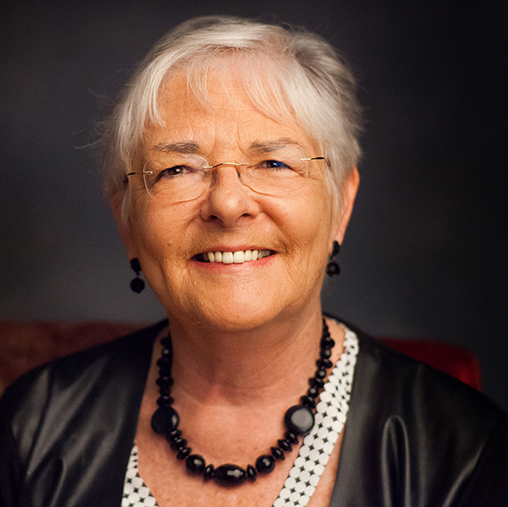Below are some discussion questions for Book Clubs. If you would like to arrange for a Skype Author Appearance for your book club, please use the contact page to contact us.
READING GROUP DISCUSSION QUESTIONS FOR DEATH AT THE FAIR
1. Why was the World’s Columbian Exposition of 1893 such an important event for the city of Chicago? (The city was established in 1830? The Great Fire that burnt down most of the center of the city was in 1871)
2. What is the past relationship of Dr. Stephen Chapman and Marguerite Larrimer? Who was to blame for their broken engagement?
3. What does Marguerite Larrimer tell Emily in the hotel before she leaves for Kentucky? Is she lying? What kind of woman is she? What kind of man was her husband?
4. Why did Ida Wells and her fellow authors choose to write and distribute the pamphlet THE REASON WHY THE COLORED AMERICAN IS NOT IN THE WORLD’S COLUMBIAN EXPOSITION? Do you think their efforts were successful?
5. Why do Emily and Clara argue? Do you think this break will end their friendship? If so, why or why not?
6. In the end, what is the responsibility of the City Administration and Fitz in the murder of Larrimer? Do they deserve the blame?
7. Does Emily have to take the blame for the death of Teddy?
8. Who needs to take the blame for the death of the mayor?
READING GROUP DISCUSSION QUESTIONS FOR DEATH AT HULL HOUSE
1. What were Jane Addams and the other people at the settlement house trying to accomplish? Were they successful?
2. Why did the people of the neighborhood hate and fear the health inspectors who stayed at Hull House during the smallpox epidemic?
3. Why does Emily’s brother Alden try to find his father’s murderer by himself, without the police?
4. Why did the Hull House reformers want to limit the working day to 8 hours? Were they right?
5. What was wrong with the sweatshop system?
6. Why does Emily refuse Dr. Chapman’s proposal at the end of the book?
READING GROUP DISCUSSION QUESTIONS FOR DEATH AT PULLMAN
1. George Pullman repeatedly responded to all attempts at arbitration with the phrase “there is nothing to arbitrate”. Why did he say that? Was he right?
2. Was Emily right to sympathize with the strikers or should she have stayed neutral as Dr. Chapman and Detective Whitbread tried to tell her?
3. Do the types of practices described in the book justify the labor laws and regulations that were implemented in the twentieth century? How much regulation is too much? How little is too little?
4. Who won when the strike ended? Did Pullman win? Did the railroads?
5. At the end of the strike Eugene V. Debs went to prison and the A.R.U. was destroyed. But many more unions grew powerful in the twentieth century. Are unions necessary?
READING GROUP DISCUSSION QUESTIONS FOR DEATH AT WOODS HOLE
1. Edna Thurston represented the amateur groups whose work allowed the Marine Biological Laboratory to be established. Why does Cornelia Clapp defend the actions of the male scientists who waited until Miss Thurston's train had departed to hold a crucial vote that took power away from her group?
2. Is Clara right to allow Sinclair to use her research discoveries to forward his career goals? Why does she do that?
3. Cornelia Clapp already has a PhD but she will attend University of Chicago to get a second degree, and she is not planning to try to succeed Whitman as director of the MBL. What do you think of her actions? She was one of only 2 women to be on the Board of MBL, do you think she did enough to encourage women scientists? It is said that from 1880 to 1910 women made great strides in the participation in scientific enquiry, but then participation fell off until the 1960's. Why do you think that happened?
4. Even today, when you mention Woods Hole Marine Biological Laboratory, you will learn that many current scientists, young and old, count their experience there as important to their scientific careers. Why do you think that is still the case?
READING GROUP DISCUSSION QUESTIONS FOR DEATH AT CHINATOWN
1. How does the way immigrants to the U.S. are treated today compare to how Chinese immigrants were treated in the book?
2. In America, Emily is a new type of woman. In China, Ida Kahn was called China's New Woman in a famous literary essay. The book is set in the time before the Chinese Revolution of 1911 when the Empress was finally overthrown. How do the new women of the two different cultures compare?
3. Have you ever heard of Wong Chin Foo? What did you think of him as a character? Why do you think we don't remember him these days?
4. Should Emily object to her husband's work on radiology with Emile Grubbe, or should she support it?
READING GROUP DISCUSSION QUESTIONS FOR DEATH AT THE PARIS EXPOSITION
1. Why has fashion always been such a preoccupation for women?
2. Emily spurns the young women who are husband hunting in Europe, but she admires Bertha Palmer. How is Mrs. Palmer different from the Edith Wharton type women in the book?
3. How is Mary Cassatt different from other women in the book?
READING GROUP DISCUSSION QUESTIONS FOR DEATH ON THE HOMEFRONT
1. Emily Cabot's daughter Lizzie tells her mother that by marrying into a prominent, wealthy family she will be able to do more good than her parents can do in comparatively powerless academia. Do you think she is right?
2. President Wilson was reelected on a platform saying he had kept America out of the war. What do you think of the change of policy in spring 2017? How did this effect the characters?
3. Advertising has been a major industry in the U.S. in the twentieth century, dramatized in "Mad Men" and other stories. What do you think of the Four Minute Men?
4. The American Protective League was established to support official law enforcement. Are such nonofficial vigilante groups a threat to democracy? Why?
5. What do you think of the anti-German sentiments portrayed in the book?
For images that support the book go to:
https://www.pinterest.com/fdmcnama/death-on-the-homefront/
For a video on writing the book go to:
https://youtu.be/tg2dRSC5VjU

